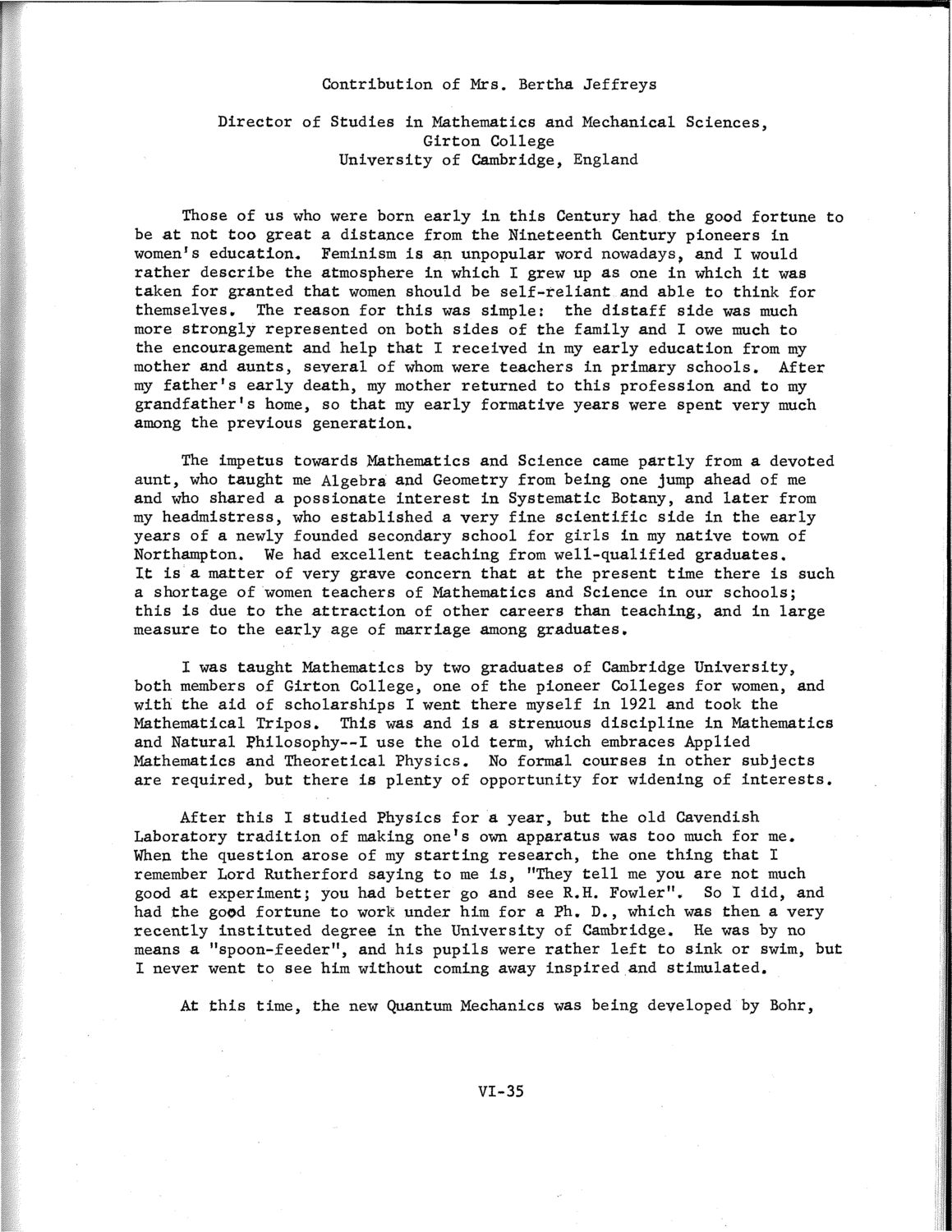| |
| |
Caption: SWE - Proceedings of the First International Conference of Women Engineers and Scientists
This is a reduced-resolution page image for fast online browsing.

EXTRACTED TEXT FROM PAGE:
Contribution of Mrs. Bertha Jeffreys Director of Studies in Mathematics and Mechanical Sciences, Girton College University of Cambridge, England Those of us who were born early in this Century had the good fortune to be at not too great a distance from the Nineteenth Gentury pioneers in women's education. Feminism is an unpopular word nowadays, and I would rather describe the atmosphere in which I grew up as one in which it was taken for granted that women should be self-reliant and able to think for themselves. The reason for this was simple: the distaff side was much more strongly represented on both sides of the family and I owe much to the encouragement and help that I received in my early education from my mother and aunts, several of whom were teachers in primary schools. After my father's early death, my mother returned to this profession and to my grandfather's home, so that my early formative years were spent very much among the previous generation. The impetus towards Mathematics and Science came partly from a devoted aunt, who taught me Algebra and Geometry from being one jump ahead of me and who shared a possionate interest in Systematic Botany, and later from my headmistress, who established a very fine scientific side in the early years of a newly founded secondary school for girls in my native town of Northampton. We had excellent teaching from well-qualified graduates. It is a matter of very grave concern that at the present time there is such a shortage of women teachers of Mathematics and Science in our schools; this is due to the attraction of other careers than teaching, and in large measure to the early age of marriage among graduates, I was taught Mathematics by two graduates of Cambridge University, both members of Girton College, one of the pioneer Colleges for women, and with the aid of scholarships I went there myself in 1921 and took the Mathematical Tripos. This was and is a strenuous discipline in Mathematics and Natural Philosophy—I use the old term, which embraces Applied Mathematics and Theoretical Physics. No formal courses in other subjects are required, but there is plenty of opportunity for widening of interests. After this I studied Physics for a year, but the old Cavendish Laboratory tradition of making one's own apparatus was too much for me. When the question arose of my starting research, the one thing that I remember Lord Rutherford saying to me is, "They tell me you are not much good at experiment; you had better go and see R.H. Fowler". So I did, and had the good fortune to work under him for a Ph. D., which was then a very recently instituted degree in the University of Cambridge. He was by no means a "spoon-feeder", and his pupils were rather left to sink or swim, but I never went to see him without coming away inspired and stimulated. At this time, the new Quantum Mechanics was being developed by Bohr, VI-35
| |